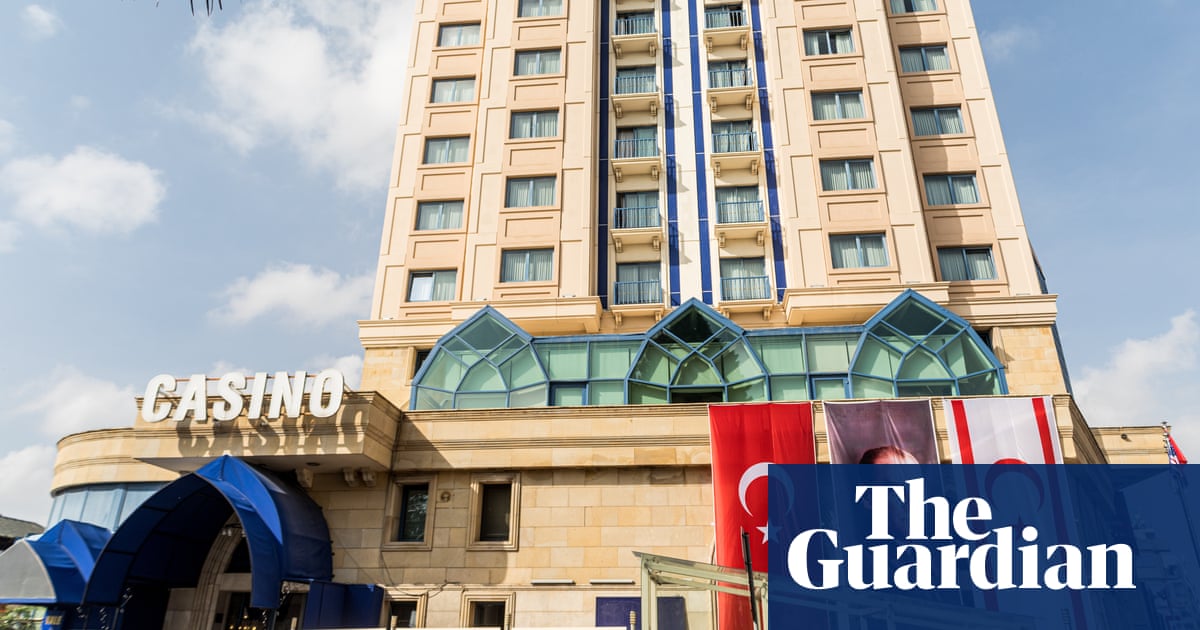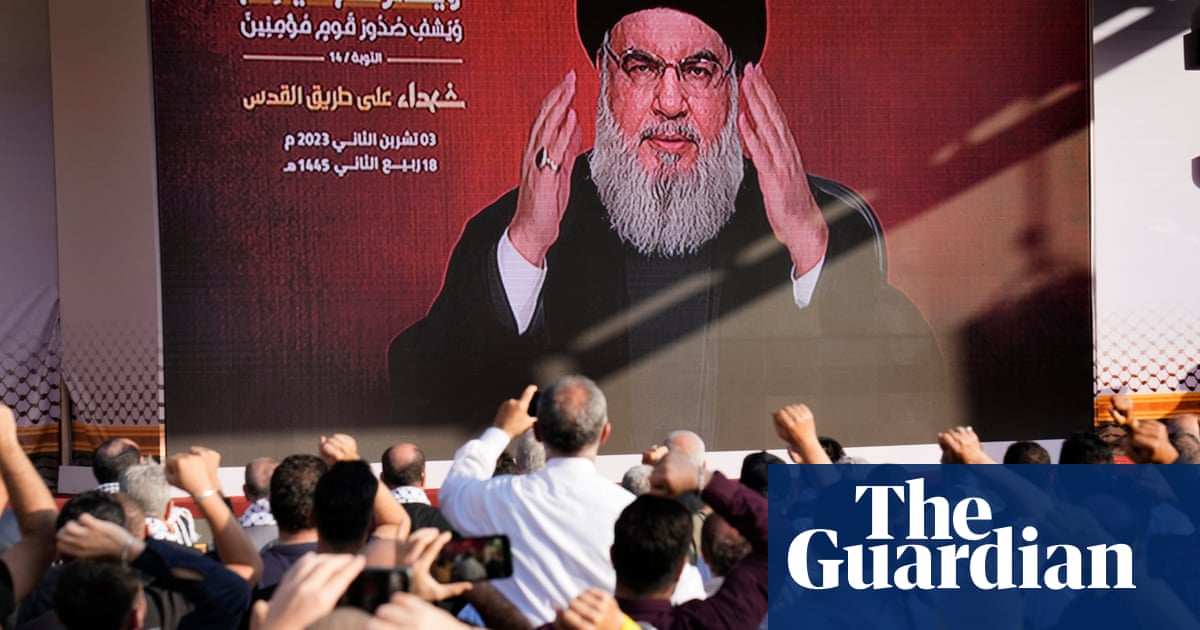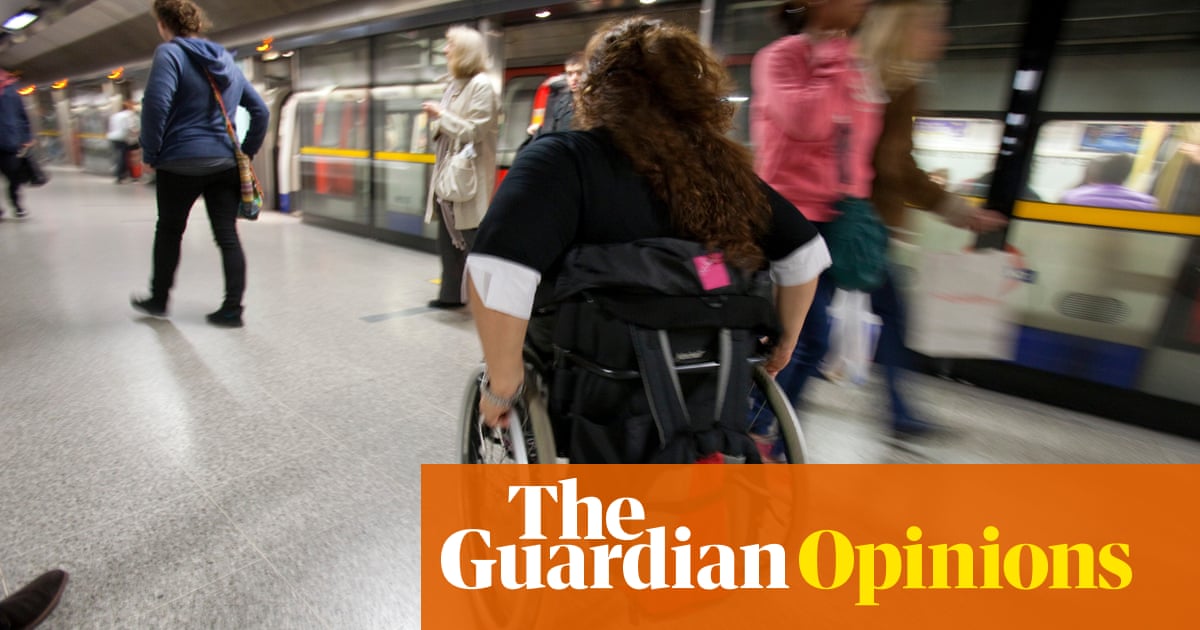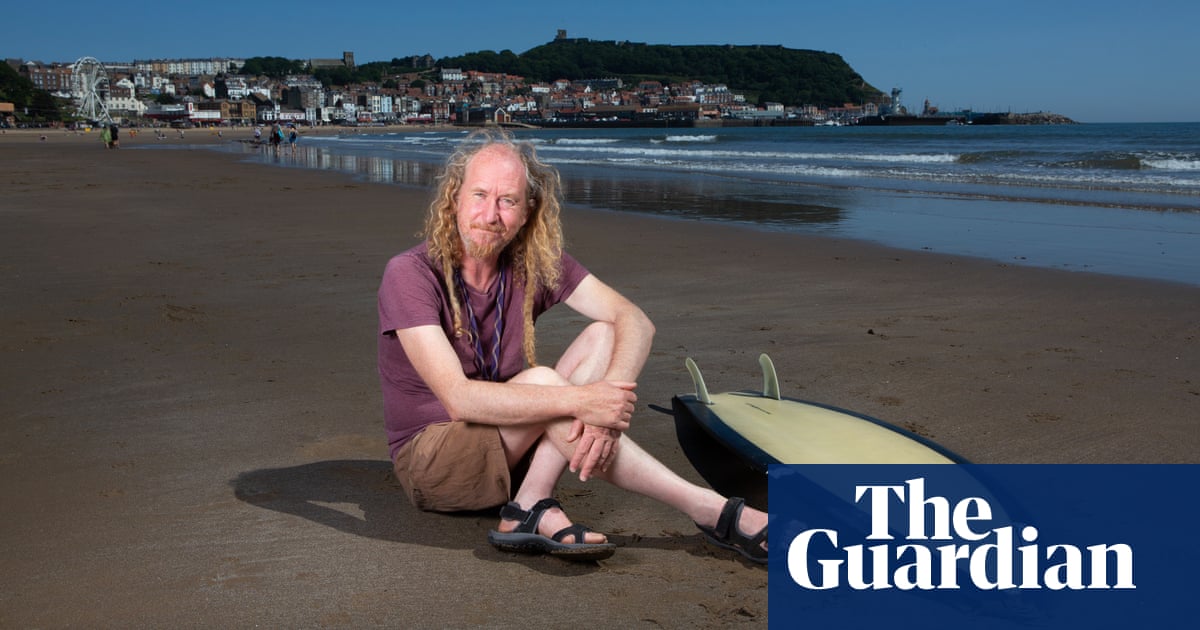
“Russian speakers love living here, they like to be in a community and ours is growing all the time,” says Ruslan Ibrayev, the salesman greeting customers at the head office of the Hub property investment firm in Iskele in Turkish-occupied northern Cyprus.
The area, he beams, has become a magnet for buyers from the former Soviet Union, so much so they have moved in en masse. “Business is good,” says the young Kazakhstani, waxing lyrical about the penthouses, apartments and studio flats that the real estate agency has been selling at record speed. “Very good.”
Developers would agree. Construction activity in the island’s self-proclaimed republic is booming. Tower blocks are multiplying in an industry flourishing thanks to an influx of rubles and Iranian rials that have led to cashflows increasing and foreign currency reserves soaring to about 80% of the value of bank holdings.
It is clear that seven months after Anglo-US sanctions were slapped on individuals and entities for ‘“enabling” oligarchs – including Roman Abramovich – to manage assets in the internationally recognised Republic of Cyprus, Russians seeking to move their money inside Europe are looking elsewhere.
And, increasingly, it appears they have looked no further than across the UN buffer zone that bisects the war-split island, to the self-styled Turkish Republic of Northern Cyprus.
Few places know this more than Iskele, a once-nondescript town whose flatlands have been transformed under the weight of ferro concrete. Turkish Cypriots have come to call the seaside town a new Limassol, the coastal city to the south that played no small part in earning Cyprus the moniker of Moscow on the Med.
As in Limassol, where the first oligarchs arrived after the fall of the Soviet Union, Iskele’s boulevards are lined with Cyrillic shop signs, billboards promising “the dream life”, luxury car dealerships and cryptocurrency outlets.
Stories of local lawyers getting rich overnight are legion. So too are reports of champagne parties livening up the bars and restaurants of Russian-favoured resorts.
“The north is a de facto state. It’s not bound by international agreements, has weak institutions and is only recognised by Turkey,” says Sertaç Sonan, a prominent political scientist, who describes the construction boom as “a money printing business” for the breakaway state. “It’s a grey area, perfect for anyone wanting to do shady business.”
The British high commissioner, Irfan Siddiq, went further in August, describing the tiny territory as a “black hole” when he addressed an audience of diaspora Greek Cypriots in Nicosia, the divided capital.
While he claimed illicit movement of Russian capital had been “largely cleared up” in the south – spurred by the closure of thousands of Russian-held accounts and the fear the sanctions have generated among Greek Cypriot lawyers and accountants – the north had become a growing concern.
“The problem of money laundering is now present in the north, as well, and that’s a challenge for us,” he told the gathering, adding the UK had imposed sanctions on more than 1,600 individuals and entities since Moscow launched its invasion of Ukraine in February 2022.
Western governments are keen to praise the president, Nikos Christodoulides, for the way he has sought to clean up the country’s financial industry – shutting more than 120,000 suspicious bank accounts and more than 40,000 shell companies – in the nine months since he assumed office.
Today, the headquarters of Cyprus’s sanctioned “financial fixers” – the office block of MeritServus in Limassol and the grandiose sandstone building that once housed the Nicosia law firm of Christodoulos Vassiliades – stand shuttered and empty: symbols of the perils inherent in facilitating Kremlin-linked oligarchs. Tellingly, the gross value added of professional and financial services declined in the second quarter of 2023, according to the Cyprus statistical agency.
Still, even as Russians head north – and official figures show more than 39,000 settling here this year alone – analysts are hesitant to give the network of lawyers and accountants that had long operated in the south a clean bill of health. Rumours have abounded of Greek Cypriot lawyers helping Turkish Cypriot colleagues assume the portfolios of Russian clients.
“There has to be major change,” says Dr Alexander Apostolides, an economics researcher at the European University Cyprus who has advised the Cypriot government. “Without structural reform in terms of creating a sanctions office and serious consideration of proposals to create a single money-laundering regulator, it’s difficult not to see another scandal erupting down the line.”
The Cyprus government has promised a “zero-tolerance approach” to sanctions violations, and is receiving technical support from the British government to create a sanctions implementation unit next year. Its spokesperson, Konstantinos Letymbiotis, told the Guardian: “The strategy of our government, who took office in March 2023, is of zero tolerance on matters concerning sanctions evasion and law violation, and by extension, to safeguard the country’s name as a reliable financial centre. I would like to stress that our government is unequivocally committed to fighting corruption and illicit finance and take all necessary actions to ensure full implementation of EU sanctions.”
Undoubtedly it is the wholesale absence of banking regulations, EU laws and other international norms that has played a big role in Russians (closely followed by Iranians) more recently transferring funds to the north.
Arrivals at Ercan airport in the self-declared republic have shot up since Putin began his “special operation” in Ukraine. Green Line crossings from the south have also soared, with 58,788 Russian nationals registered as entering the enclave via checkpoints between January and September, according to the Turkish Cypriot tourist ministry. The total number of crossings is likely to be almost seven times higher in 2023 than it was three years ago.
“You hear of Russians driving over from the south with suitcases filled with cash,” says Şener Elcil, for years the head of KTOS, the Turkish Cypriot teachers’ union. “This new trend of all these people settling here is causing a lot of problems. In Iskele, the new Limassol, 69% of pupils are either from Russia or Iran. Language difficulties have become a major complaint of teachers.”
Turkey’s steadfast refusal to impose sanctions on Moscow, despite being a Nato member, is also viewed as being decisive in Russian cashflows flooding the rump state.
“The north has followed Turkey’s lead in not endorsing sanctions against Moscow,” says Prof Mustafa Besim, the dean of the faculty of business and economics at the Eastern Mediterranean University. “They can easily make a deposit straight into an account of any of the 22 banks here.”
Over the course of the past year, Russians had not only piled into the statelet’s plethora of casinos but contributed to its increasingly traffic-jammed road network in newly acquired, high-end cars.
“It’s a bit like the wind,” mused the well-respected academic when asked if northern Cyprus was now at the sharp end of Russian money laundering. “You don’t see it but you feel it.”
Unlike the elaborate services sector that had existed for decades in the south – helping oligarchs procure Cypriot citizenship in the heyday of the island’s discredited cash-for-passport programme – investors in the north have been facilitated almost solely by legal firms acting as proxies.
“The business provider network which catered to Russians in the [Greek Cypriot] south has morphed into a new network of Turkish Cypriot lawyers creating trusts,” says Mertkan Hamit, a local economist.
“The trusts are completely anonymous, they are a perfect way to hide assets, no questions asked, and that is the beauty of it for money laundering. The ultimate goal is not to stay in Cyprus. The goal is to sell the assets, have the money ‘cleaned’, and move on to London, Dubai, Manhattan.”
Under the trust system, investors could buy as much real estate as they wanted, circumventing laws that otherwise stipulated foreigners owned no more than three properties. “The government has accepted that a lot of what we are seeing is unofficial. Foreign investors, led by Russians, are literally buying dozens of properties at a time,” says Hamit.
Turkish Cypriot authorities have promised to crack down, and both the government and opposition have vowed to collaborate on new anti-money laundering legislation.
But, as in the south, where the “golden passport” scheme raked in more than €9bn (£7.9bn) for the country, insiders say they have turned a blind eye because there is so much money to be made in building permits, transfer taxes and kickbacks.
With property selling like hotcakes, the sight and sound of cranes hanging over Iskele’s skyline is unlikely to disappear any time soon –even if controversy over the sales is bound to increase since most blocks are believed to be built illegally on land that once belonged to the island’s majority population of Greek Cypriots displaced from the north in 1974, when a coup aimed at union with Athens prompted Turkey to invade.
“During the summer we all sit on the beach, and talk about how we got here,” says Ivan, who arrived in the north three years ago where he has since snapped up three flats, two in the garishly gargantuan Caesar resort.
Watching his daughter scamper around the complex’s playground in the fading light of day, the burly Ukrainian admits that for the time being there is no place he would rather be.
“There are lots of Russians here and yes, I am Ukrainian, but all of us love this place. You want to spend black money, there are no questions asked. You want to buy a house, there are no questions asked. It is not like London where the banks always ask ‘where did you get this from, where did you get that from?’ But in a few years, maybe, when we sell up, I think England will be the place we want to go.”












